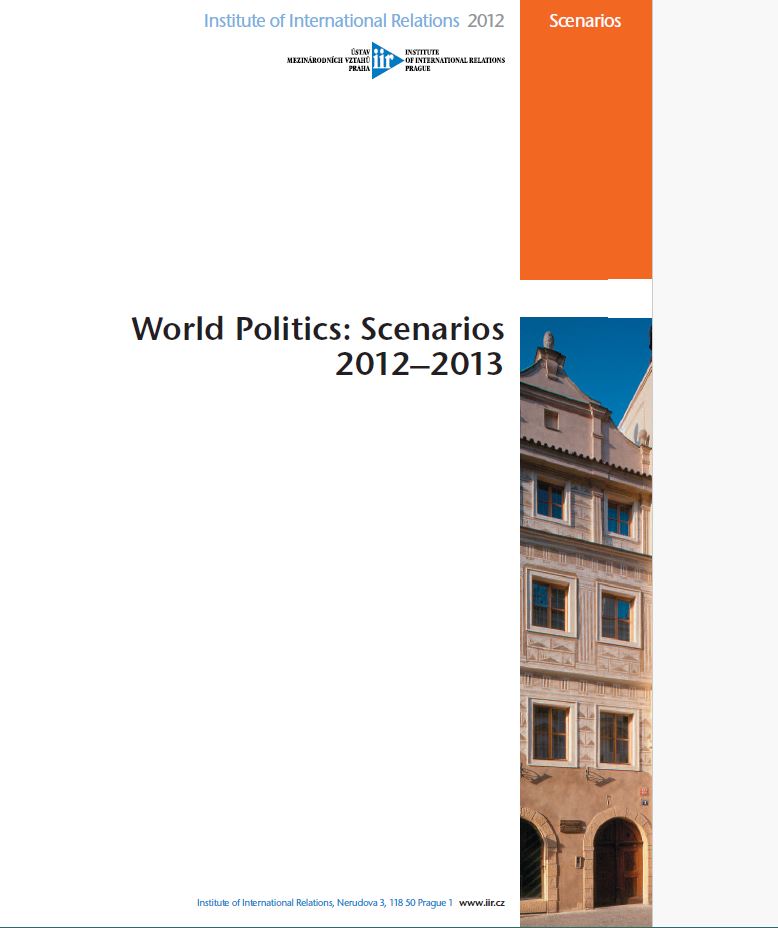World Politics: Scenarios 2012–2013
World Politics: Scenarios 2012–2013
Author(s): Vít Beneš, Mitchell Belfer, Mats Braun, Jan Eichler, Rudolf Fürst, Vladimír Handl, Nik Hynek, Michal Kořan, Petr Kratochvíl, Lucia Najšlová, Vít Střítecký, Tomáš Weiss
Subject(s): Economic policy, Government/Political systems, International relations/trade, Security and defense, Electoral systems, Political behavior, Politics and society, Comparative politics, EU-Approach / EU-Accession / EU-Development, Fiscal Politics / Budgeting, Geopolitics, Peace and Conflict Studies
Published by: Ústav mezinárodních vztahů
Keywords: Fiscal policy; Germany; Central Europe; EU; Turkey; Cyprus; China; USA; Iran; Bahrain; Afghanistan; Asia-Pacific Area; Russia; Presidential elections; Geopolitics;
Summary/Abstract: Scenario building was first introduced in the U.S. security community in the 1950s. In RAND projects, “scenarios” (with the term consciously borrowed from the Holywood film industry to emphasize their storytelling character) evolved into a sophisticated auxiliary means of political decision-making. The method was thus born from the spirit of the Cold War, yet soon it found its way into the private sector, where it has served to manage corporate risk. More recently, scenarios witnessed a rise in popularity also in the think tank community as outcomes relevant for policy makers due to their potential to bridge theoretical knowledge with the needs of political practice (early warning potential) and as a means of broadening and deepening the space for public debate about global politics.
Series: IIR - SCÉNÁŘE
- Page Count: 50
- Publication Year: 2012
- Language: English
- Content File-PDF

